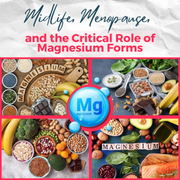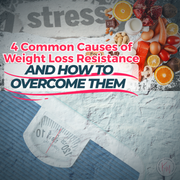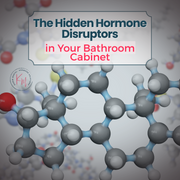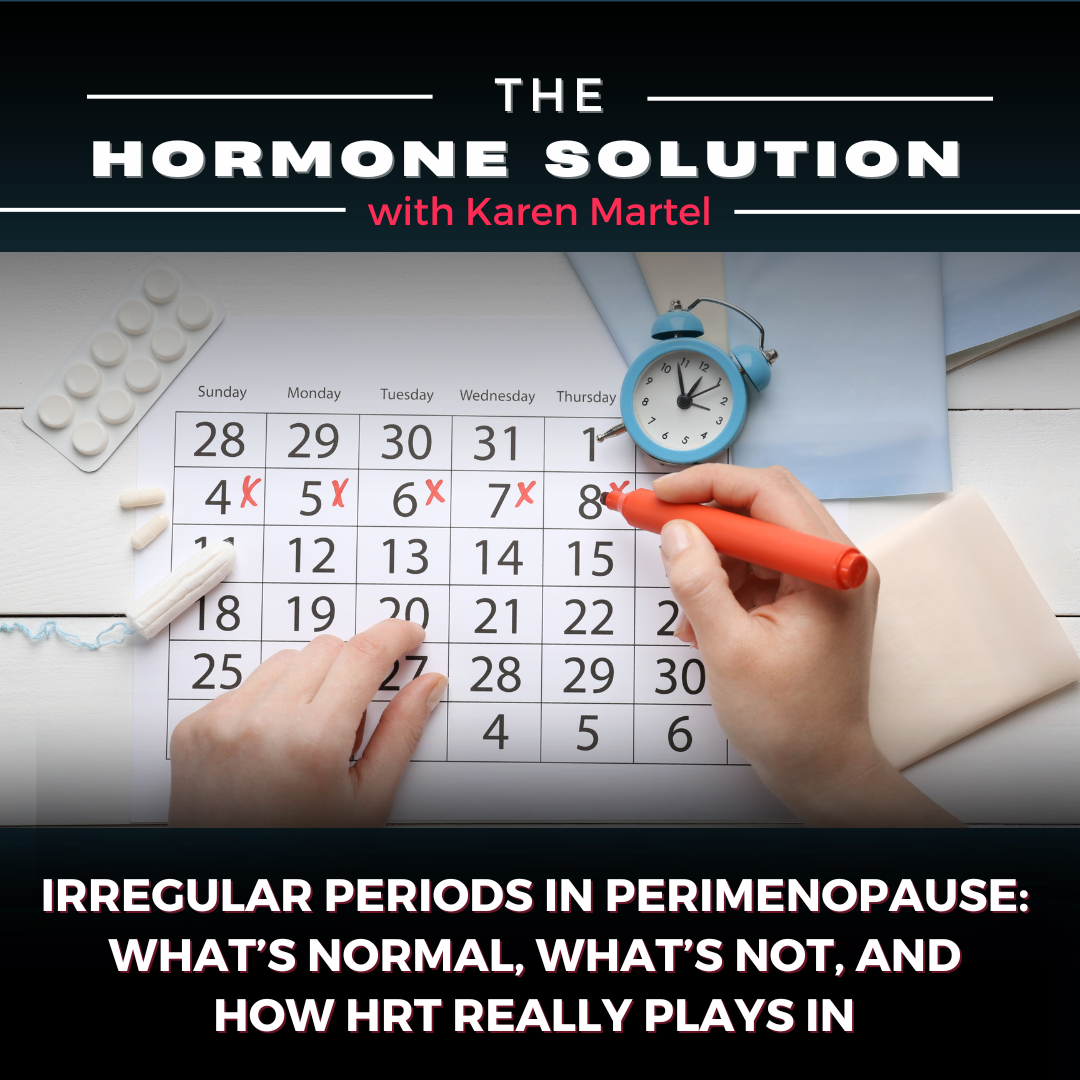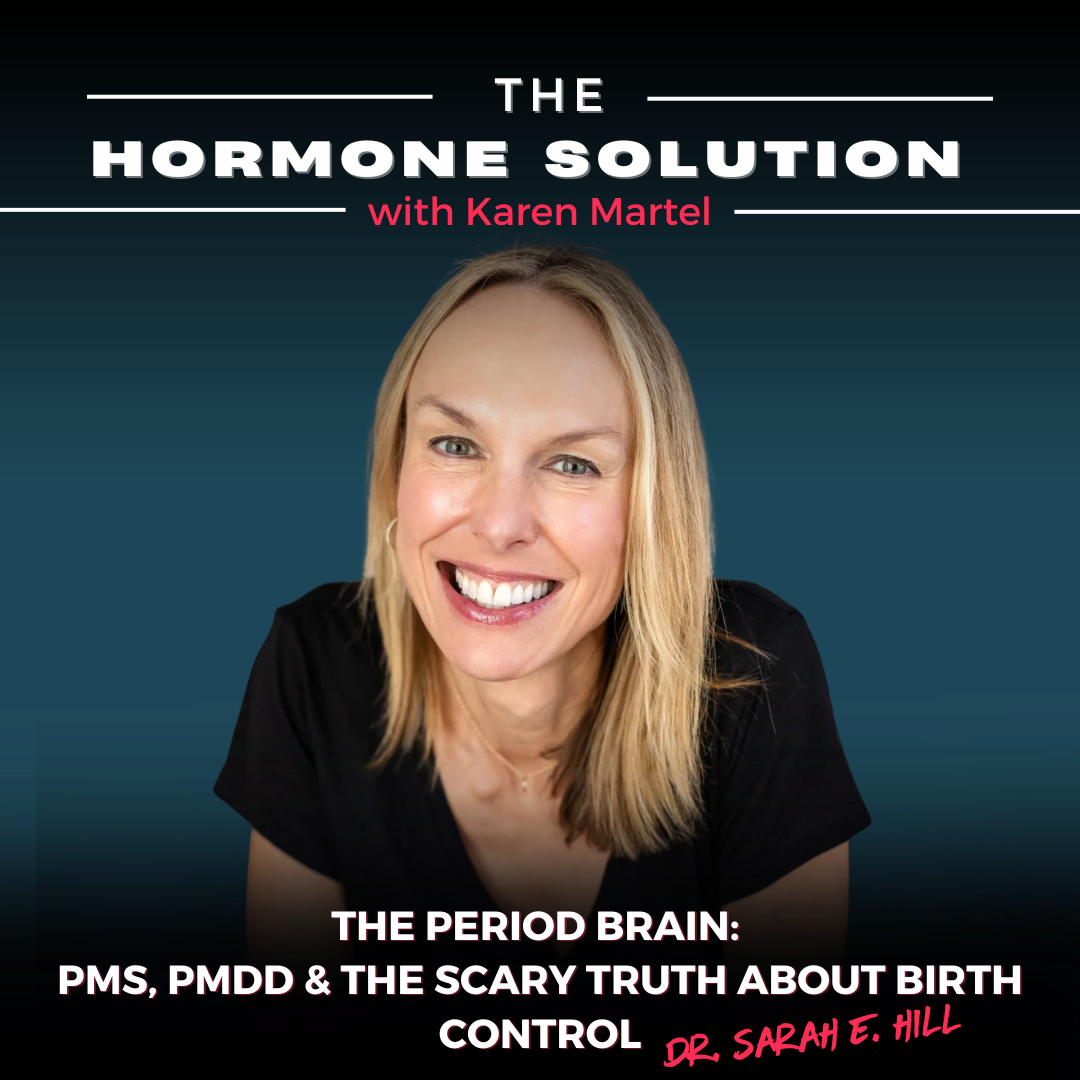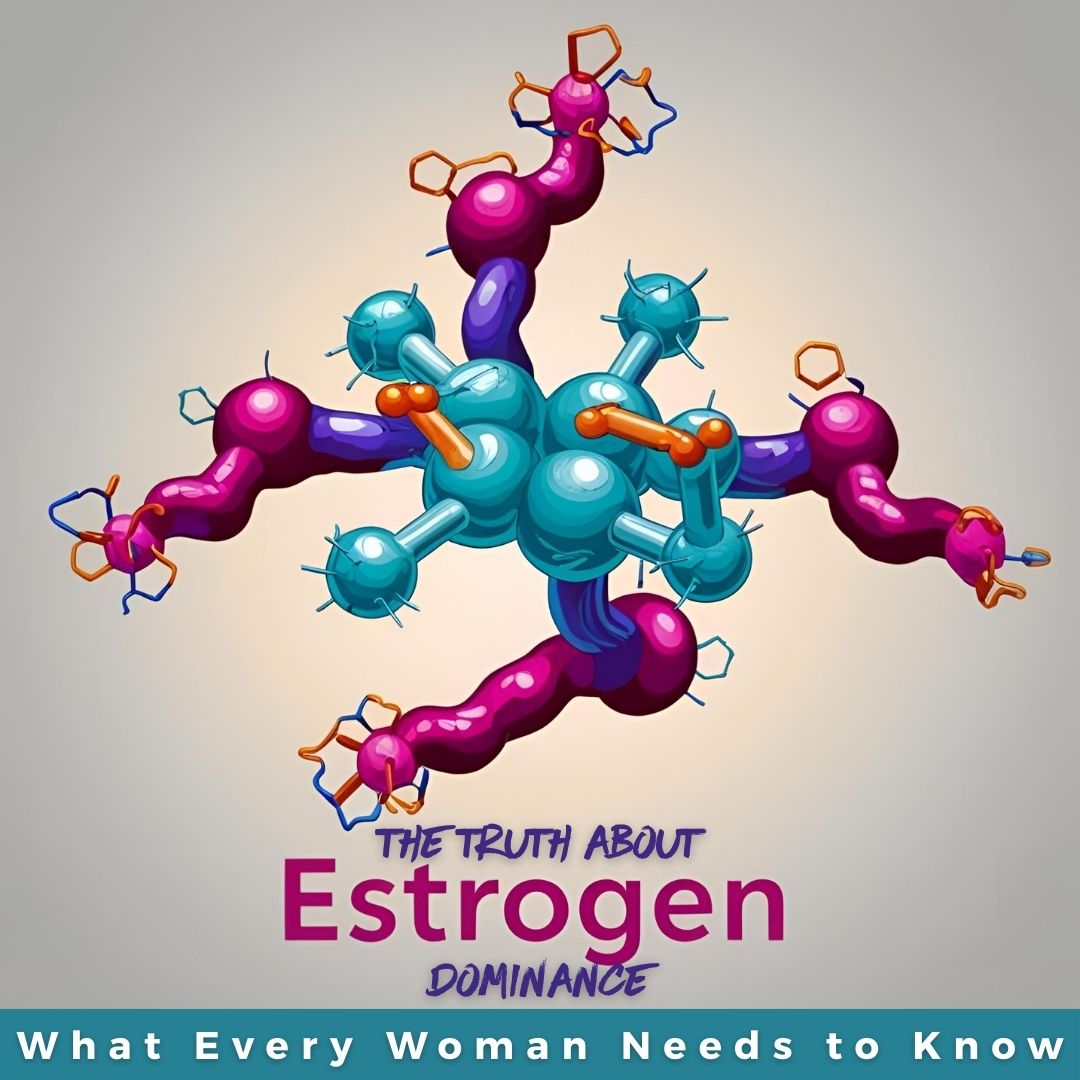
The Truth About Estrogen Dominance: What Every Woman Needs to Know
Ever heard the term estrogen dominance and wondered if it applies to you? If you’re in perimenopause or menopause and dealing with things like heavy periods, mood swings, brain fog, or fibroids—chances are, it does.Estrogen dominance happens when estrogen levels are too high relative to progesterone. And let me tell you—this hormonal imbalance isn’t just a nuisance. It can wreak havoc on your body and mind in ways most women aren’t warned about. So let’s break down what estrogen dominance actually looks like—and how to fix it.
1. Uterine Fibroids & Heavy Periods (aka “The Flood”)
Fibroids are non-cancerous tumors that grow in the uterus—and they love estrogen. These little troublemakers are packed with estrogen and progesterone receptors, so when estrogen is out of balance, fibroids grow. That leads to periods that go from manageable to murder scene—hello, menorrhagia.
This is especially common in perimenopause, when hormone levels swing like a wrecking ball. If your cycle has turned into a horror show, estrogen dominance might be behind it.
2. Endometriosis: Fueled by Estrogen
Endometriosis is a painful, inflammatory condition where endometrial-like tissue grows outside the uterus. It’s driven by—you guessed it—estrogen, especially estradiol. This potent form of estrogen stimulates rogue tissue growth, worsening pain, inflammation, and scarring.
Reducing the estrogen load—through diet, liver support, and hormone balancing—can be a game-changer for managing symptoms and improving fertility.
3. Breast Cancer: The Estrogen Misunderstanding
Let’s clear this up: Estrogen doesn’t cause breast cancer, but it can promote the growth of existing estrogen receptor-positive (ER+) tumors. Think of it like this:
-
Estrogen isn’t the spark that lights the fire.
-
But if the fire’s already smoldering, estrogen can be gasoline.
Estradiol vs. Estrone: What’s the Difference?
-
Estradiol (E2):
The gold-standard estrogen. It’s the most potent and beneficial form, dominant during reproductive years. It supports brain, bone, heart, skin, and vaginal health—and when balanced with progesterone, it’s not strongly linked to breast cancer risk. -
Estrone (E1):
This one’s trickier. Estrone becomes dominant in menopause, especially in women with higher body fat (since fat tissue makes estrone). It’s more likely to convert into harmful estrogen metabolites like 4-hydroxyestrone, which can damage DNA and increase cancer risk.
Now Let’s Talk Alcohol
If you’re truly concerned about breast cancer, cutting back on alcohol may lower your risk more than avoiding HRT:
-
Just 1 drink a day increases breast cancer risk by 7–10%, according to the American Cancer Society.
-
Alcohol raises estrone levels and interferes with estrogen metabolism, making it more harmful.
-
And unlike HRT, alcohol offers zero health benefits.
4. PMS & Hormonal Migraines
You know those headaches that show up like clockwork before your period? That’s the estrogen drop triggering migraines and making PMS miserable. The rollercoaster of rising and falling estrogen can heighten pain sensitivity, mood swings, and even depression.
Balancing estrogen—and boosting progesterone—can dramatically reduce PMS symptoms and period pain.
5. Period Cramps: The Hidden Hormone Link
Estrogen dominance makes cramps worse in a few key ways:
-
Thicker Uterine Lining: Estrogen builds the lining; without enough progesterone to regulate it, the lining gets thicker—causing heavier bleeding and more intense contractions to shed it.
-
More Prostaglandins: These inflammatory chemicals trigger stronger uterine contractions (aka cramps) and can lead to nausea, diarrhea, and headaches.
-
No Calming Balance: Progesterone calms the uterus; estrogen doesn’t. Without enough of it, your uterus gets overactive and cranky—like trying to calm a toddler without a nap.
6. Mood Swings, Anxiety & Brain Fog
Estrogen doesn’t just impact your uterus—it plays a huge role in brain function. And here’s the kicker: both too much and too little estrogen can mess with your mental health.
Too Much Estrogen (Estrogen Dominance):
-
Causes brain overstimulation
-
Leads to anxiety, racing thoughts, irritability, and insomnia
-
Feels like your emotional volume is cranked up to 11
Too Little Estrogen (Estrogen Deficiency):
-
Slows down neurotransmitter production (like serotonin and dopamine)
-
Triggers depression, apathy, brain fog, and memory issues
-
Feels like the lights are dim and your motivation is on pause
Why do they feel so similar?
Because estrogen acts like a brain dimmer switch: too high = chaotic, too low = sluggish. The key is balance—especially with progesterone, which promotes GABA, your brain’s natural calming chemical.
So, What Can You Do About It?
Managing estrogen dominance starts with getting clarity on what your hormones are doing. From there, you can support your body in the right direction:
-
Test—don’t guess. Get your hormone levels checked.
-
Support liver detox (this is how your body clears excess estrogen).
-
Use bioidentical progesterone to balance estrogen dominance.
-
Cut down on xenoestrogens (plastics, pesticides, synthetic skincare).
-
Improve gut health, which plays a role in estrogen clearance.
-
Consider bioidentical hormone therapy if needed—and use the right kind, in the right dose, with a trained practitioner.
And yes—drop the alcohol.
Alcohol isn’t just empty calories—it’s a hormone disruptor. Even moderate drinking:
-
Raises estrone levels
-
Slows estrogen detox in the liver
-
Increases the production of harmful estrogen metabolites
Over time, this worsens PMS, heavy periods, breast tenderness, and mood swings. Cutting back (or cutting it out) can seriously shift your hormone health.
Final Thoughts
You are not at the mercy of your hormones. Estrogen dominance is common—but it’s also treatable. With the right approach, you can bring your hormones back into balance and start feeling like yourself again.
Sources:
-
Women's Health Network Editorial Team (2024). "Uterine Fibroids."
-
Orlando Health (2021). "Endometriosis: Is Estrogen the Culprit?"
-
Harvard Gazette (2023). "Estrogen: A More Powerful Breast Cancer Culprit Than We Realized."
-
Cleveland Clinic (2024). "Menstrual Migraines (Hormone Headaches)."
-
Gavin Publishers (n.d.). "Cyclical Estrogen as a Major Etiology of Interstitial Cystitis: A Theory and Review."
-
Amen Clinics (2023). "40 Signs Your Hormones Are Impacting Your Mental Health."
-
Pacific Neuroscience Institute (2025). "The Impact of Hormonal Imbalances on Neurological Health and Memory."

Find Karen Martel on Apply Podcast
Karen Martel is a Certified Hormone Specialist and Transformational Nutrition Coach dedicated to empowering women through their health journeys.
As the host of the popular podcast The Hormone Solution, Karen tackles the complexities of hormonal health, weight loss resistance, and the challenges that come with perimenopause and menopause.
Her mission is to disrupt outdated narratives surrounding women's health, providing reliable information and practical solutions that help women reclaim their vitality.
Tune in to discover how to embrace life's stages while enhancing overall well-being.

